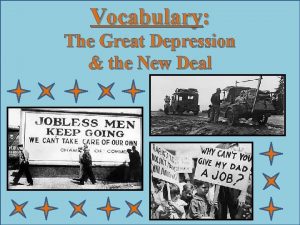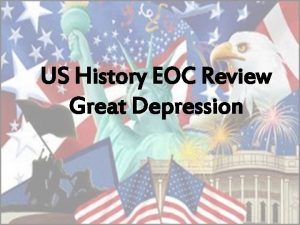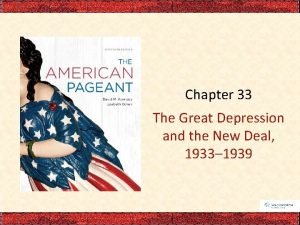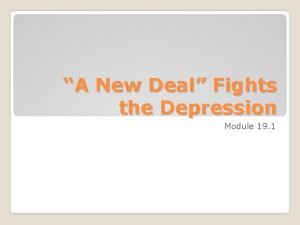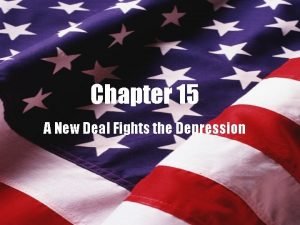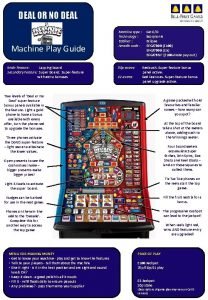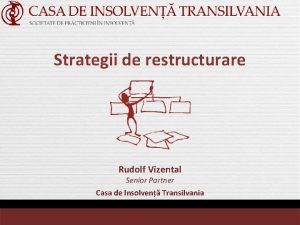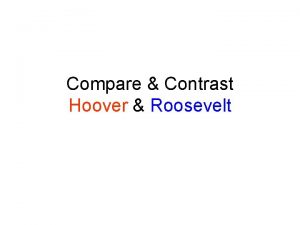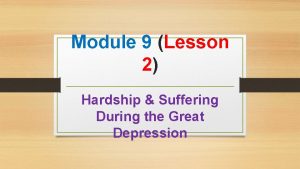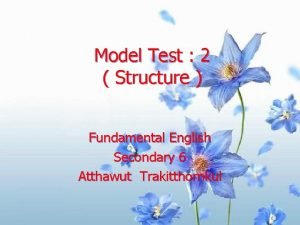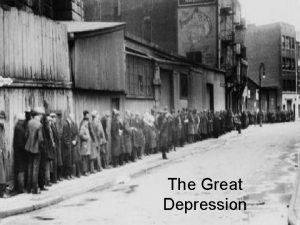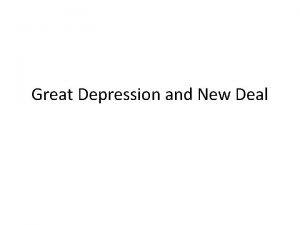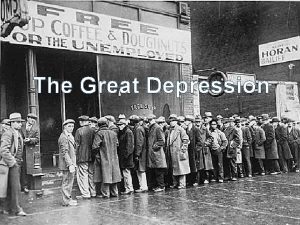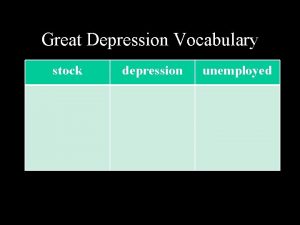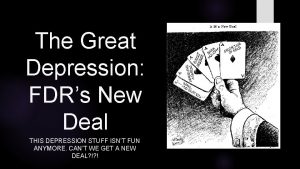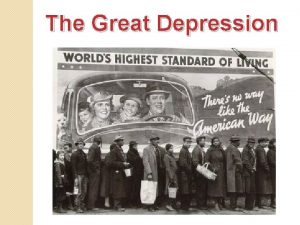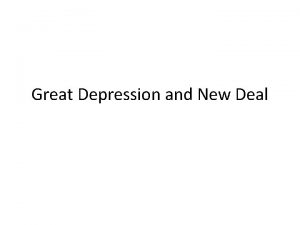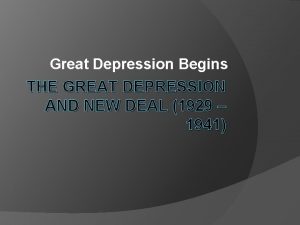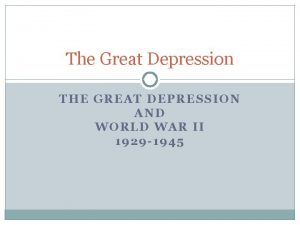The Great Depression and the New Deal Pt












- Slides: 12

The Great Depression and the New Deal (Pt 2) APUSH Ms. Weston 2/24/06

Rural areas n n n Crop prices kept falling and farmers were quickly losing their farms. In addition a drought began in the 1930 s and destroyed farms on the Great Plains. Farmers in the Dust Bowl were hit hard. Many left the area and came to California. They were known as Okies.

“Okies” on the road

Paying Farmers NOT to Farm n Agricultural Adjustment Administration (AAA) n n Created “artificial scarcity” by paying farmers to reduce the crops they produced Would lead to rising prices and price stability Much criticism: “Sinful destruction of food, ” increased unemployment Declared unconstitutional in 1936, changed 2 nd AAA— gave farmers a fairer price, more of a share of national income.

Other aid to farmers and Native Americans n n Resettlement Administration: helped near-farmless farmers get better land “Indian New Deal” n n John Collier Indian Reorganization Act of 1934—encouraged tribes to set up own selfgovernment and preserve native crafts and traditions.

Providing Electricity to Rural Areas n Tennessee Valley Authority—federal government built dams to provide cheap, efficient energy to thousands of Dust Bowl families. n Improved land, provided jobs and low-cost housing, flood control.

Cleaning up finance and investments Federal Securities Act: Promoters had to be honest about stocks they were selling. n Securities and Exchange Commission— polices buying and selling of stocks n n “Watchdog agency”

Housing and Social Security n n n Federal Housing Administration (FHA)—small loans for people to improve homes or buy new ones. US Housing Authority (USHA)—lent money to states or communities for low cost construction. SOCIAL SECURITY ACT (1935)—most important New Deal legislation!!! n n Federal-state unemployment insurance Pensions to retired workers, blind, disabled, dependent children

Victories for Labor n National Labor Relations Act (Wagner Act— 1935) n n Workers more aggressive in fighting for rights n n Response to end of NRA Reasserted right of labor to organize and bargain collectively Est. National Labor Relations Board CIO and sit-down strike Other reforms: Minimum and maximum wage levels, labor by children under 16 prohibited.

Roosevelt’s Supreme Court Battles n n n Court had blocked or killed a lot of New Deal legislation Roosevelt had “court-packing” plan—said Court needed “new blood” and was behind in its work Plan opposed by majority (esp. Republicans), made Roosevelt look bad. Still, court became more friendly to New Deal reforms. Still, New Deal slowed down after 1937.

Roosevelt Recession n n New Deal did not cure economic woes of Depression, unemployment still high, lots of homelessness 1937—economy took another downturn n n As a response, FDR finally began deficit spending 1938—New Deal lost most of momentum NOT UNTIL WWII THAT THE DEPRESSION FINALLY ENDS!

Legacies of the New Deal Built up government bureaucracy n Rise of national debt n Principle that federal government is responsible to help the people and manage the economy n Saved American capitalism(? ) n Reform without a revolution n
 Aaa new deal
Aaa new deal Us history eoc review the great depression and the new deal
Us history eoc review the great depression and the new deal Chapter 33 the great depression and the new deal
Chapter 33 the great depression and the new deal A new deal fights the depression
A new deal fights the depression Soil conservation and domestic allotment act
Soil conservation and domestic allotment act A great deal vs a great many
A great deal vs a great many Deal or no deal machine
Deal or no deal machine Rudolf vizental
Rudolf vizental Herbert hoover and franklin roosevelt compare and contrast
Herbert hoover and franklin roosevelt compare and contrast The great depression lesson 2 hardship and suffering
The great depression lesson 2 hardship and suffering Pros and cons of the great depression
Pros and cons of the great depression Dust bowl migration map
Dust bowl migration map One of the most effective vegetable protein
One of the most effective vegetable protein
